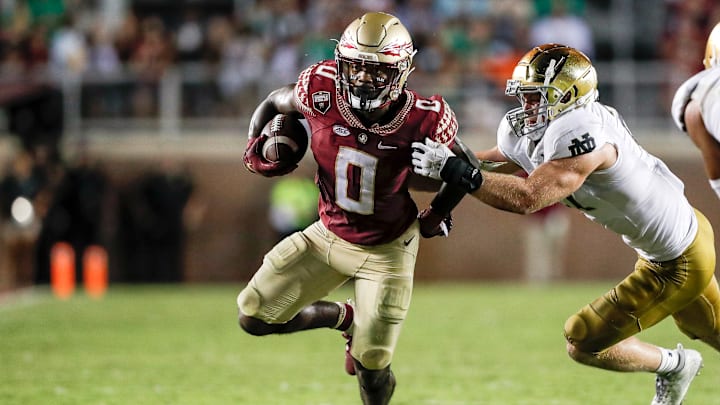Early College Football Playoff Era (2014-2018)
When the College Football Playoff expanded to four teams in 2014, it represented both a breakthrough and a missed opportunity. For the first time in more than 140 years, there would be some semblance of a bracket to decide the national champion at the top level of college football. But the bracket still proved too small to completely eliminate controversy and erase the mythicism from the national championshp narrative.
Imagine if the College Football Playoff had gone a different way. Which opening-round matchups would make for the most compelling appointment television?
2014
#5 Baylor Bears (11-1 Big 12 co-champion)
vs.
#12 Georgia Tech (10-3 ACC runner-up)
In the first year of the College Football Playoff, a co-champion situation in the Big 12 meant that both Baylor and TCU were left on the outside looking in at the four teams playing for a national title. Had the bracket encompassed 12 teams, Baylor would have hosted ACC runner-up Georgia Tech with a solid chance to advance to the next round. Paired with TCU's rematch against conference foe Kansas State, there could easily have been two Big 12 champions in the final eight.
2015
#6 Stanford (11-2 Pac-12 champion)
vs.
#11 TCU (10-2 Big 12 runner-up)
Stanford's two regular-season losses prevented the Cardinal from gaining much momentum with College Football Playoff selectors, and their win in the Pac-12 title game over 8-4 USC did no more to tip the scales in their favor. David Shaw's crew settled for a Rose Bowl trip that year, but in a world with a 12-team playoff they would have hosted Big 12 runner-up TCU on the Farm. More events like this might have kept the Pac-12 healthy, flourishing, and existent.
2016
#7 Oklahoma Sooners (10-2 Big 12 champion)
vs.
#10 Colorado Buffaloes (10-3 Pac-12 runner-up)
The College Football Playoff selection committee continued to show little interest in the Big 12 champion in the third year of its existence, relegating Oklahoma to seventh in its final ranking of 2016. The Sooners would earn a showdown with former Big 8 and Big 12 rival Colorado in a hypothetical playoff that year, after the Buffaloes fell in the Pac-12 championship game. One can only imagine sports networks diving deep into their archives to pull up classic footage between these two teams.
2017
#5 Alabama Crimson Tide (11-1 SEC West runner-up)
vs.
#12 UCF Knights (12-0 AAC champion)
UCF justifiably felt aggrieved when the College Football Playoff selection committee passed up one of only two undefeated teams at the end of the regular season in favor of an Alabama team that didn't even win its division. Both teams won out, and both claimed national championships that year. Imagine if, instead, the two teams dueled in Tuscaloosa in the opening round to see which earned the right to take on Ohio State in the quarterfinals.
2018
#8 UCF Knights (12-0 AAC champion)
vs.
#9 Washington Huskies (10-3 Pac-12 champion)
Had a 12-team playoff existed in 2018, UCF still wouldn't make the top four and earn a bye. But they would get to host Pac-12 champion Washington as they took another shot at claiming a national title. The Huskies finished with 10 wins in a down year for the Pac-12, and that mediocrity (or parity, as the Pac-12 always tried to sell it) would have relegated the Huskies to a road trip in the playoffs despite winning a Power Five conference. In this alternate universe, UCF would be just the second mid-major (after Boise State) to host a first-round playoff game.
